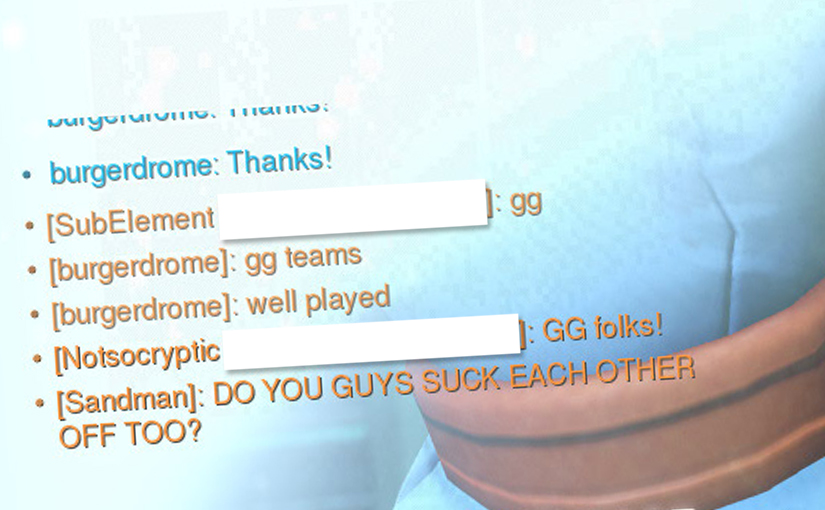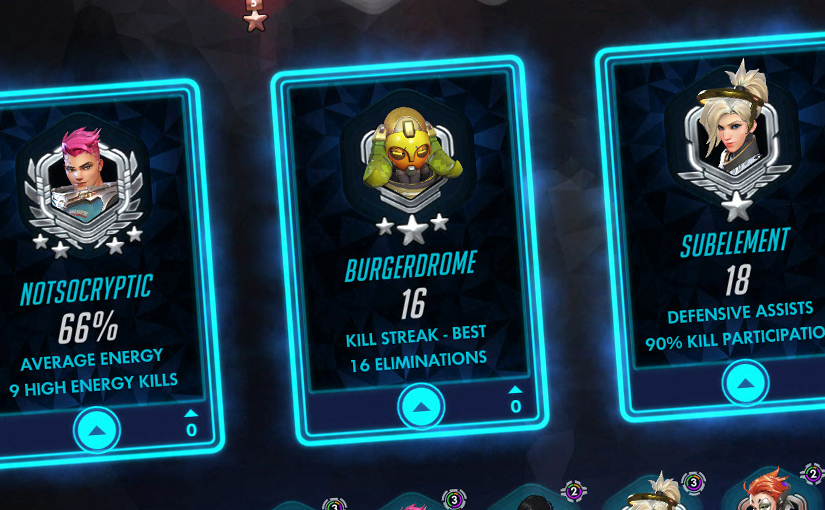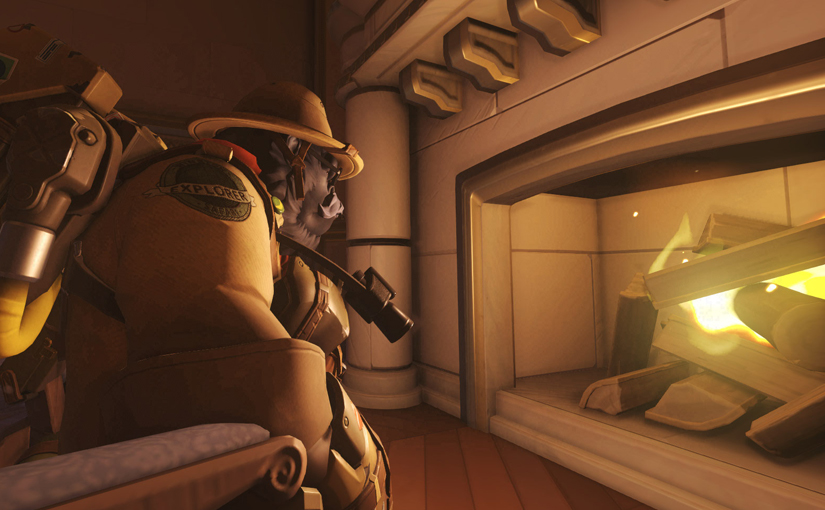Lately Jess and I have been playing less and less Overwatch, down from 15-20 hours a week (if not more) to two, three or even zero hours. Without meaning to, we kind of drifted away from a game where each of us have sunk a nearly four-digit number of hours, which is easily a record for the both of us. It’s on my mind a lot lately and I really just want to get some thoughts down on paper about why that is.
A lot of it comes back to the new Role Queue system. Blizzard introduced Role Queue in July last year, strictly limiting the 6-person team to two DPS, two tanks, and two supports. If you ask Blizzard why they did this, they’ll say it was to make sure games remain “fair and fun”. If you ask literally any member of the community they will tell you in no uncertain terms it was because the GOATS composition was an unstoppable strategy which was dominating all levels of play and making things boring at best and stupid at worst.
Named after the team who invented it and used it to steamroll everyone, the GOATS composition is as simple as it is effective. Ignoring DPS entirely and only having three tanks and three healers creates an unstoppable rolling murderball of endless barriers and hitpoints with a surprising amount of damage output (mostly because some of Blizzard’s “tank” characters are just DPS characters who switched their name-tags when Jeff Kaplan’s back was turned).
The core of Overwatch is “reduce your enemy’s hit points to zero before they do the same to you”, and GOATS strips away any pretensions in order to take that rule to its logical conclusion. Modern problems require modern solutions, Roll Safe meme template the enemy can’t reduce your hitpoints to zero if you effectively have infinite hitpoints dot jpeg etc, you get the idea. It became increasingly common to jump into Quick Play, a supposedly fairly casual event, to find ourselves facing an enemy team coordinated enough to run a GOATS comp. If we didn’t immediately change heroes to mirror them, we would lose. That’s how the game worked.
It sucked ass, it wasn’t any fun, and it needed to be stopped. Role Queue was the solution, at least on paper: strict 2/2/2 compositions make it much harder to do game-breaking combos and (again, on paper) gives everyone a chance to shine at what they want to do. There are a few inherent issues with this, which we’ll get into soon, but mostly the Role Queue system did seem to be working.
Anyway, the other day we were talking about why it was that we both seemed to be less interested in the game, and Role Queue kept coming up in the conversation. Jess pointed out that since Role Queue had been introduced, she felt a higher pressure to perform than before, and found it harder to just relax and have fun, which lines up completely with my own experiences.
Both of us have almost completely stopped playing damage heroes since Role Queue came in, and not just because it blows out the matchmaking time completely, but also because it means we can no longer select a DPS hero and just “have fun” or “see what happens” – we have to be switched on, focused and doing our part, or else the whole team suffers.

Take the pressure down
To be honest, even now when I’m writing this, just imagining that feeling of pressure, knowing that everyone is counting on me to be The Best Damage Boy… I hate it. It makes me feel nervous and annoyed; nervous because I don’t want to let anyone down, and annoyed because I just wanted to have a good goddamn time. Under the Role Queue restrictions, if I’m feeling brave enough to play damage… well, what if we don’t need a Junkrat, the only damage character I reliably know how to play?
What if we need a Pharah? Or a McCree? Or one of the 7,301 other damage heroes that I am, strictly speaking, “not very good at”? Well if that happens — AKA nearly every single game — then the other five members of my team have to watch me miss shot after shot as Widowmaker, watch as we lose the point because we’re effectively missing a player, and then tell me it’s okay as I apologise for letting the team down.
“Why don’t you just use this as an opportunity to practice those characters and get better?” you might ask. Fair enough, but here’s the thing: as much as it sucks for me to feel nervous and annoyed, for the other people on my team, the experience of playing while trying to rely on an underperforming DPS also sucks, and I don’t like knowing that I’m putting people through that.
We know it sucks, because we’ve been there! Role Queue regularly creates situations where we (and our mates) will be playing as tanks and supports, and the deranged Matchmaking Algorithm “helpfully” barfs up a pair of damage players who only installed the game yesterday and are more interested in educating us on their impressive vocabulary of racial slurs than on left-clicking enemies. When this happens, it’s almost a guaranteed loss, and it just makes everyone super mad. There is no winning, in or out of the game.
Before Role Queue, you could say to your team “Hey this isn’t working for me, can I swap?” or maybe “Hey we could really use a Pharah – you’re good at Pharah, can you play her while I cover your role?”. I enjoyed this aspect of the game because it encouraged teamwork and communication. Now in a post Role Queue era, if you’re having a bad time you can essentially get fucked, and that’s the end of the discussion.
Everyone has a different idea of what makes a video game fun, and look, all of them are valid. It’s your fun and you set the rules. But my idea of fun these days as a 35 year-old man with a vanishingly small amount of spare time who spends all his hours in emotionally intensive work, is drawn from what I have identified as four key metrics:
- I can start playing and instantly be enjoying myself
- There is no pressure to perform to a certain standard
- I can stop playing without feeling like I let myself or anyone I care about down
- I get to socialise with my friends
Overwatch used to tick all of those boxes, at least in Quick Play (although GOATS was making #1 a bit harder). I have always refused to touch Competitive with a ten foot pole because the Pressure to Perform in that particular mode is off the charts, and that’s just not my idea of fun (Although it is for other people! Which is okay!). But the introduction of Role Queue has changed the Quick Play dynamic by ramping up that Pressure to Perform — not to Competitive levels for sure, but to a level where I’m increasingly struggling to appreciate the other aspects of the experience.
“Why not just play Quick Play Classic and enjoy things the way they used to be?” you ask again, very insightfully. Well, because Quick Play Classic is broken as fuck, and people are still up in there doing things like running a GOATS composition against an enemy team made up of one overworked Mercy and five DPS heroes, all of who respond with “its qp lol” when asked to change, assuming they even read chat at all.
The core mechanics of Overwatch are still fundamentally not in a strong enough place to support this sort of totally freeform gameplay, and this is a problem that has existed since day zero when you were allowed to have multiples of the same character on the field (before Blizzard quickly realised that games consisting of 12 D.Va’s were actually not very fun). In the years since launch, the developers have been gradually increasing the restrictions on how the game can be played in order to (consciously or otherwise) mitigate those core issues, and Role Queue is the latest one of those restrictions.
From a certain perspective – one that Blizzard clearly holds – this is fair enough: restrictions breed creativity, restrictions force interesting choices, and ultimately promote a healthy game. That’s certainly true of game design in general, but that’s not, in my opinion, what’s happening here.

Treating the symptoms, not the cause
I believe that these restrictions are band-aid solutions over a core systemic issue, which is this: Overwatch incentivises, prioritises and rewards doing damage over everything else (regardless of what class you are technically playing).
You will always have a greater impact on the game by doing damage (or facilitating the doing of damage) rather than any other activity, even if that activity like healing or shielding is what you’re “supposed” to be doing. Shielding and healing are only useful in as much as they facilitate the delivery of this damage, and the actual experience of healing or shielding is not intrinsically and inherently rewarded or encouraged by the mechanics the same way that doing damage is (and definitely not by the community or other players, unless you’re in a good and friendly team).
There’s a reason why everyone wants to play the classes which do the most damage, rather than the genuinely defensive tanks or the purely healing supports, and it’s simple: when you do this, Overwatch enters into an active partnership with you. You feel strong and powerful, and usually are able to move faster and more dynamically than everyone else. Cool skull icons appear on your screen all the time telling you how great you’re doing, while the kill feed tells 11 other people what a badass you are. Your ultimate abilities are the ‘big plays’, the most visually and mechanically satisfying ones in the game, and the post-match Play of the Game algorithm is practically guaranteed to hold you up for everyone to adore, because it’s programmed to value kills above everything else.
On a hero-to-hero basis, the high-damage heroes (regardless of their nominal “class”) are the ones that usually require an explicit counter-pick on the part of the enemy team, otherwise they will wreak havoc. This design implicitly encourages players to select high-damage heroes, because it increases the chances of playing as someone who will provide you with the most unrestricted and reliably positive experience, even if your own team is not supporting you.
Heroes like Doomfist, Bastion, Wrecking Ball etc are designed (for a reason I will never understand) with a set of abilities which mean they need to be hard-countered by the enemy team, and in a casual game of Quick Play, chances are honestly pretty good that the enemy team won’t be coordinated enough to do that. It’s safe for you to roll the dice.
Even other high-damage heroes with the ability to instantly eliminate an enemy like Hanzo or Widowmaker, heroes which rarely need to be explicitly countered but just more broadly need to be focused and controlled, are still designed such that they have an oversized footprint on the game and can’t be ignored. There’s a reason every single Overwatch professional team includes a god-tier Widowmaker player: if you don’t have one and your opponents do, you will lose. It’s depressingly common to come up against one of these Sniper Gods in the wild thanks to the droolingly idiotic Matchmaking Algorithm, which just results in six or seven shitty and frustrating minutes of having your head drilled open again and again until the torture is finally over.
The bottom line is that being good at damage always has a bigger impact on an Overwatch match than being good at shielding or healing.
At every step of the way, Overwatch actively rewards and encourages you for being a Big Murder Boy. Getting those kills is a non-stop dopamine rush from beginning to end, and hey, I love it just as much as anyone else, you know? I even made a video of all of my Junkrat highlights. Our monkey brains are all wired to crave that dopamine! Give it to me.
But on the other side of the class divide, playing a genuinely defensive tank, or a purely healing support means that you very rarely get any active positive reinforcement from the game itself. You have to seek out your own sources of positive reinforcement, which means:
- Making an active, out-of-game personal choice to enjoy the play style that those classes offer and derive value/meaning from it regardless of what happens in the game, and/or;
- Doing the out-of-game emotional work of surrounding yourself with people who are friendly and positive.
Both of these are totally fine and valid of course, and hell, I do both of them every time I play. I genuinely enjoy playing these roles for their own sake, and I’m rewarded for doing so because I’ve done the work of surrounding myself with good friends and positive people who will thank me for a well-placed Reinhardt shield or Lucio barrier.
The point I’m trying to make is that this is a completely different situation from playing a high-damage hero because it means you have to do your own work outside of Overwatch, in order to enjoy the same amount of positive reinforcement and feedback that a high-damage hero receives as a baseline from just playing the game.
If you do your job in as a tank or support well then nobody will notice, and regardless of your actual performance, random slur-lords on your team will instantly default to blaming you for any losses. Got gold healing? Doesn’t matter, because ‘HitlerPenis88’ is in the chat sending you a rape threat, even though you know for a fact that you saved his life on seven different occasions. Absorbed 24,000 damage with your barrier? This guy doesn’t care, because as far as he is concerned he never got hit, so he didn’t even notice.

Just coordinate more, idiot
All of these core issues feed back into and magnify the problems with the Role Queue system. Everyone wants to play damage (for all the reasons outlined above), so the damage queue is always a mile long, which is another problem I haven’t even gotten into here. So you feel forced into playing tank or support, but now you’re now under even more pressure than you were before which adds an extra layer of work onto the work you already have to do.
In some ways, having a rigid 2/2/2 lock makes for a more balanced game. But I argue that it currently makes for a worse experience, and that’s ultimately what I will factor into my decision making on a day-to-day basis.
Clearly, some of these issues are mitigated by having a full team of six players who are all communicating and supporting each other. Ultimately Overwatch is a team game, so a more coordinated team with better communication will probably win, or at least have a better time when they lose. And this is true: playing with friends is always a more positive experience than playing on our own.
But this is not a good defence of the core problems with Overwatch. For one, it’s unrealistic to expect that a full team of six friends communicating in good faith is something everyone can access, especially on a moment’s notice the instant the enemy team rolls out of the spawn room with a pirate ship comp. The more realistic Overwatch experience, statistically speaking, is being told to go and fuck yourself by the Tracer player who refuses to change when you politely suggest that a Soldier 76 would be a better Pharah counter. For a game which I would argue only even approaches “balanced” when both teams are fully and completely coordinated, this feels like a cop-out response.
(As an aside: putting heroes into the game like Doomfist or Wrecking Ball which force the other team into a coordinate-perfectly-right-now-or-lose binary choice seems like ignorant game design at best and salt in the wound at worst. “Do X or die” is never good game design and I’m not sure why it’s been implemented so strongly here.)
Secondly, and perhaps more relevantly at this time, good communication and good teamwork does nothing to mitigate the frustrating restrictions that the Role Queue system creates. No amount of good-faith friendship with my supportive mates can get around the fact that playing a lot of Junkrat does not make me good at McCree, and playing a lot of Reinhardt does not make me good at Zarya. The game simply does not operate under the rock/paper/scissors model that the Role Queue categories seem to think it does. If what I’m good at isn’t working out, why can’t I just head to the spawn room with another player and we both agree to swap roles in the middle of a game?
It feels like a frustrating series of dead-ends. With no restrictions, the game is open to abusive murderball combinations like GOATS. But with the current Role Queue restrictions, Quick Play is starting to feel more like Competitive Lite — the increased pressure to perform, and the sweaty fear of social disappointment is making it harder to have the instant and low-pressure fun that I crave. And at the end of the day, no action is being taken to make the non-damage roles more attractive or viable.

Overtime
This is about 2,000 words longer than I thought it would be, so let’s try and wrap it up. I want to be clear that obviously Blizzard cannot force people to communicate or coordinate. People have to want to do these things on their own. But what Blizzard can do is take a good long hard look at the incentives that their game offers to Overwatch players, and why people behave the way they do.
Players – and people in society in general – don’t just arbitrarily decide to randomly do things. We examine, consciously or not, the various incentives on offer (positive or negative) and then make our decisions, which are heavily weighted by low-level, primitive emotional biases we don’t even know we have.
Given the increased and externalised workload required for tank and support players to feel rewarded, compared to the instant positive reinforcement you get for playing DPS — as well as the recently introduced difficulty of changing away from what you’re good at with a Role Queue lock — is it any wonder I am being told to go and fuck myself by a level 13 Tracer named ‘TheAnusDestroyer’ who shouldn’t even be in my game anyway?
You might disagree with every single word I’ve written here, and hey: that’s okay! My experience of the game isn’t your experience of the game. But with a stupid amount of hours logged in Overwatch I felt like I owed it to myself to write this all down and try and put it into words, so that’s what I’ve done, and if you made it this far, thanks! The game is still a lot of fun to play moment-to-moment, and I don’t think I’ll abandon it completely any time soon, but time and distance has made me think more about some of the underlying structures of the experience.
Please feel free to let me know your favourite racial slur in the comments.
